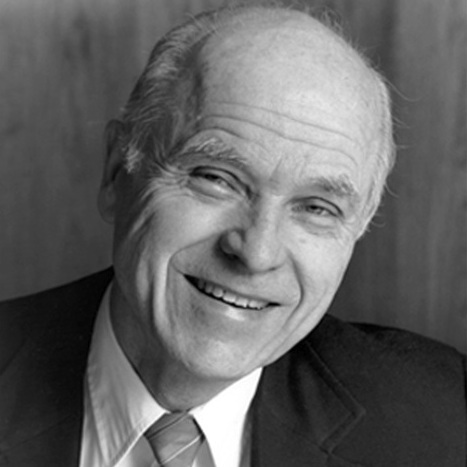Editorial Comment

“Never do anything someone else can do or will do if there are things to be done that others can’t do or won’t do.” God’s concerns must gradually become our concerns.
Nothing, nothing could possibly be more important than for you and me as individuals, in our eight hours a day, being securely in the place of God’s highest will for us. But how to do that? How to be sure?
Well, at the minimum we need to look back and look ahead.
Problem: Daily and hourly distractions, necessities, pressures, and trivialities devour almost all of our waking moments.
Answer: The medicine for this illness of the soul must certainly include time out, time to ponder freely where we are going, where we are heading, and where we may end up if we continue in the direction we are going.
Our 25th Anniversary
That need for time out, in great part, is the reason we celebrated our 25th anniversary. Now, if ever, we can and must look both back and ahead if we are to ascertain God’s highest for us.
We cannot tell you everything that happened in the last 25 years. You should write for a copy of our beautiful 16-page booklet which sums up much of it, or the revised and expanded edition of my wife’s book, I Will Do a New Thing. See pages 20-21.
But the reason to look back is to verify the hand of God in human affairs, not to glory in our own participation. We can be warmed and filled to see the concrete gains that have been made. But we need to sense the demands of the present and the near future much more urgently.
In this issue you will find a future-looking list of things we feel must be done, things big and things small. (See pages 14-15.) Many are difficult to get at, to deal with, to accomplish. But all are feasible, and all are both important and necessary.
But we cannot do all this alone. In many cases we will merely be catalysts as other organizations plunge in to assist or even to take the lead.
However, we do certainly know that we could use more hands and hearts right here.
Do you, dear reader, feel sure you are doing all you can do for the Kingdom of God?
My days are numbered. My productive days are even fewer. My life has now undergone a radical reshuffling, both during the five years of my wife’s illness, and now even more radically during the six months of her absence from my life. For me to do “my utmost for His highest” it has seemed clear that another life-companion would be very helpful, and I am beginning to believe that will be possible.
But no matter what, in your life and in mine, the future is not totally predictable. This is equally true as well as in regard to the future of our 56 families bonded together in a team which is based here in Pasadena. For all of us there is the excitement of new and unpredictable responsibilities.
I would like to believe that a certain number of our readers would be willing to join us formally, risking a major change of involvement.
Ask yourself if what you are doing each day passes the test of the founder of the Navigators:
“Never do anything someone else can do or will do if there are things to be done that others can’t do or won’t do.”
God’s concerns must gradually become our concerns. As that revolutionary process unfolds in our lives, there will be surprises after surprises. Jim Elliot said, “Most people don’t need a Call; they need a kick in the pants.” Don’t let us let this be true of us!
Some of our readers are still concerned about the fact that millions of Christians today (and even 500 years before Muhammed was born) have always used the word Allah rather than the word some of us use, spelled G O D. But, people who know about Wycliffe Bible Translators are not surprised. Why not?
Because probably a thousand different words are used in missionary translations around the world. None of these words are coined or “concocted” words. All of them were originally “pagan” terms including our word God. None of them were perfect choices. Even the New Testament choice “theos” or the Latin choice “deus” were originally pagan terms that had to gain a vastly refined meaning in their use in the Bible.
The miracle is that in the mission fields around the world what is actually a vast menagerie of pagan words for God have blossomed forth in magnificent Biblical meaning once those words are embedded in the pages of the Bible. The word allah is simply one of those. Okay, Muslims use the same word but don’t fully understand the Biblical meaning. Mormons use the Nordic word G O D for the Divine being, but have some deficiencies in their understanding of the Biblical God. However, the Bibles to which Muslims and Mormons have access are quite able to teach them faithfully the Biblical truth about … the One a few of us in the Teutonic tradition happen to call “God.” Most of the world’s Bibles, of course, don’t use our word!








comments